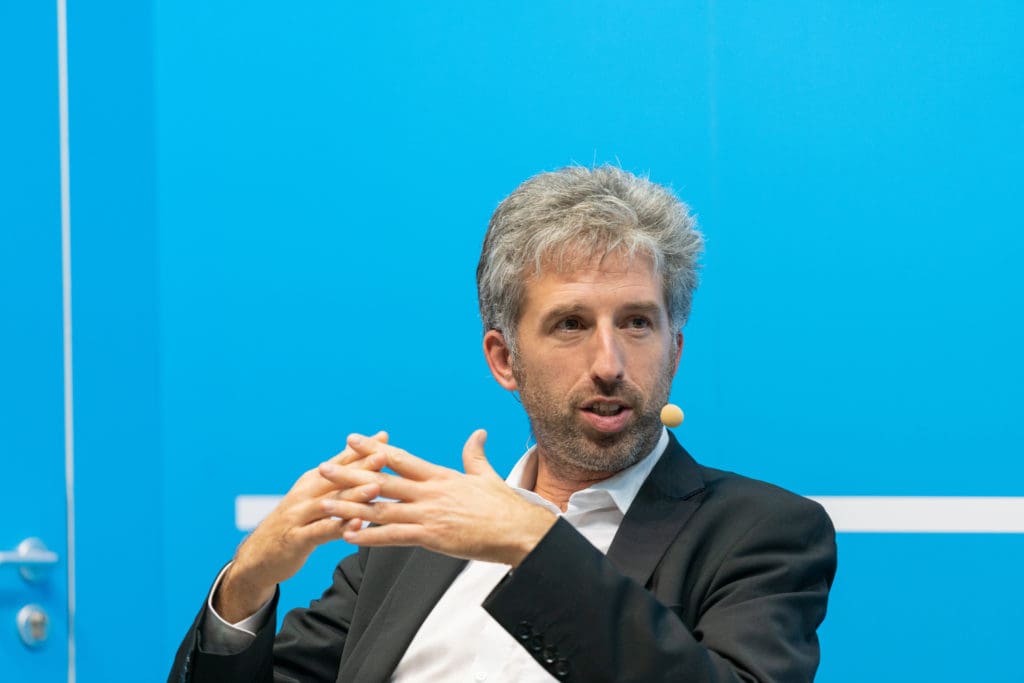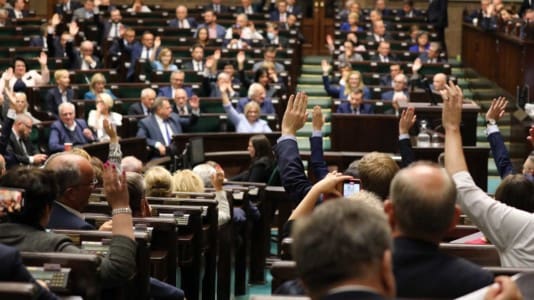As Germany’s population continues to set new record highs and migrants are set to cost taxpayers over €36 billion in 2023, there are those warning that severe social consequences could ensue.
Tübingen Mayor Boris Palmer, of the Green party, is one of those voices, and in many ways, due to his popularity and party affiliation, his voice carries more weight than others.
Palmer told Neue Osnabrücker Zeitung this week that “if we use all of society’s resources for the new arrivals, but there is nothing left for the local people, then this society will explode.”

He continued by saying that due to the mass influx of migrants, Germany’s social system will eventually be exhausted.
The costs of immigration to the taxpayer are certainly enormous, with tens of billions being spent per year to provide housing, food, and integration services to Germany’s burgeoning foreign-born population. New stories, such as this week’s report that Hamburg is spending €14 million on hotel rooms alone every month to house migrants, have become routine in the country. That number is merely a drop in the pond. Data from the Finance Ministry released earlier this month indicated that Germany is set to spend €26.65 billion on migrants alone this year. However, this figure does not even present the full picture, as that is only money spent at the federal level. States and local municipalities are also predicted to spend over €10 billion, bringing the total to at least €36 billion in 2023 alone.
[pp id=8048]
However, the issue of mass immigration affects everything and comes with many costs that are not entirely easy to calculate, from overcrowded and chaotic schools to soaring housing prices.
Palmer said that given the high number of asylum seekers arriving in Germany every year, it is important to ask what that means for the country. He points to a mix of newcomers who have a poor integration record and high demands on Germany’s social welfare system.
“Then, we’ll have few new workers and a lot of welfare recipients,” Palmer warned.
[pp id=66839]
Palmer said he sees “no solution” for the crisis. The Green party mayor has long been a critic of Germany’s migration policy, but proposals like mass deportations and tightening of citizenship laws would potentially put a dent in his image. For now, he seems content to snipe at the migration crisis from afar, offering vague warnings with no concrete proposals.
Other parties, such as the Alternative for Germany (AfD) have presented a range of policies to reduce immigration flows, including closing Germany’s borders, but the party, while popular, has little political power. AfD’s leader, Alice Weidel, said that closing the border was paramount to protect Germany’s social system., saying she sees an “undeniable alarm signal for the welfare state.” Responding to a proposal from the left-wing government that all residents in Germany should have access to a basic income, even Germany’s migrant population, Weidel said it will only fuel more newcomers, and that there are already valid concerns over immigrants relying on the welfare state instead of entering the labor market.
[pp id=67356]
At the end of February, the Green party mayor of Tübingen, Palmer, referred to Germany’s “failed” migration policy after news broke of tenants in the city of Lörrach being forced to move out of their homes to make room for migrants, a trend that has been seen in other cities such as Berlin. Palmer used the case to showcase an example of how German citizens may quickly turn against migrants.
“That may help with the accommodation of the refugees, but it endangers social peace. We must not do that,” Palmer wrote to his Lörrach Mayor Jörg Lutz.
So far, 2023 shows little sign that the migrant crisis is abating. In fact, 80,000 asylum applications were received in Germany in the first quarter of the year, according to the Federal Office for Migration and Refugees, which amounts to an 80 percent increase compared to last year.
The left-wing coalition currently ruling Germany is looking to pass sweeping immigration reform rules that would lead to nearly 2 million migrants becoming naturalized German citizens, relax citizenship tests, and allow citizenship to be obtained after five years of residing in Germany instead of the current seven.





